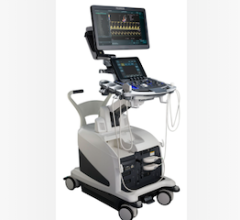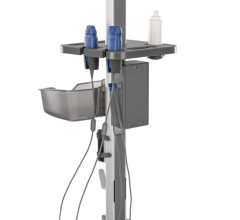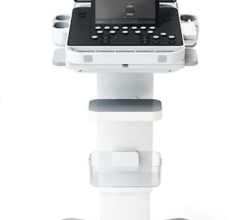
July 21, 2017 — Hitachi Healthcare and the West Virginia University Heart and Vascular Institute announced the formation of a new partnership to advance the evaluation of left ventricle (LV) mechanical function using advanced analysis tools that can provide a more comprehensive assessment of cardiovascular disease. Partho Sengupta, M.D., the Heart and Vascular Institute’s director of cardiovascular imaging, will serve as the project’s principal investigator during this multi-year strategic partnership.
The goal of the partnership is to provide evidence that cardiac multidimensional imaging with assessment of fluid mechanics has important roles in predicting non-invasive parameters in the study of percutaneous valve interventions. Vector flow mapping (VFM) is an echocardiographic technology from Hitachi Healthcare that is capable of evaluating the instantaneous blood motion in the LV.
VFM is able to quantify the formation of vortices, quantify dissipative energy loss caused by turbulence, as well as better quantify gradients and regurgitation associated with heart valves and vascular structures. By using VFM analysis during structural heart interventions such as transcatheter aortic valve replacement (TAVR) and Mitraclip devices, the hope is to optimize and develop an individualized approach and better outcomes for structural heart interventions.
“In an era when percutaneous interventions have evolved to provide excellent therapeutic options for patients, cardiac flow mechanics has the distinct opportunity of going above and beyond traditional echocardiographic techniques in optimizing structural heart techniques,” Sengupta said.
To learn more about the technical capabilities of the new Hitachi dedicated cardiac ultrasound system released in the summer of 2017, watch the VIDEO "Editor's Choice of Most Innovative New Cardiac Ultrasound Technology at ASE 2017."
For more information: www.wvumedicine.org/heart


 October 09, 2025
October 09, 2025 








